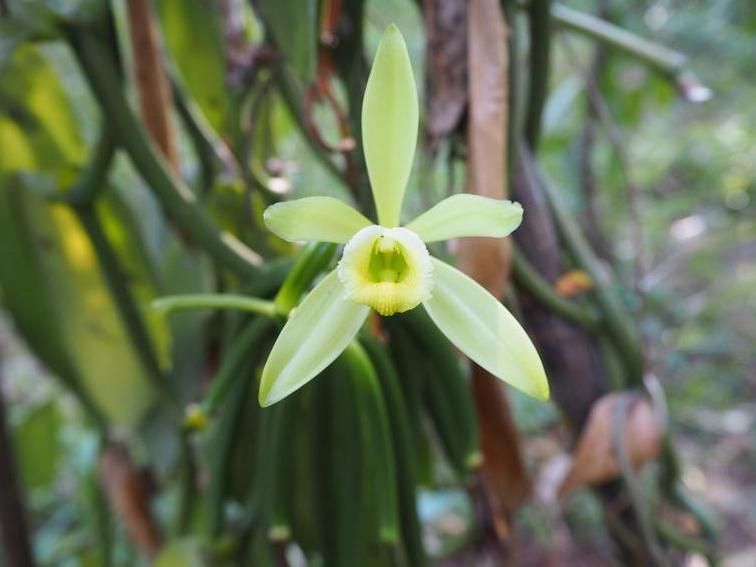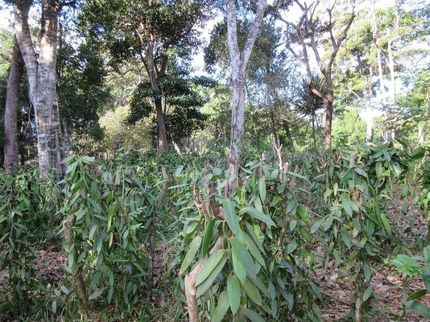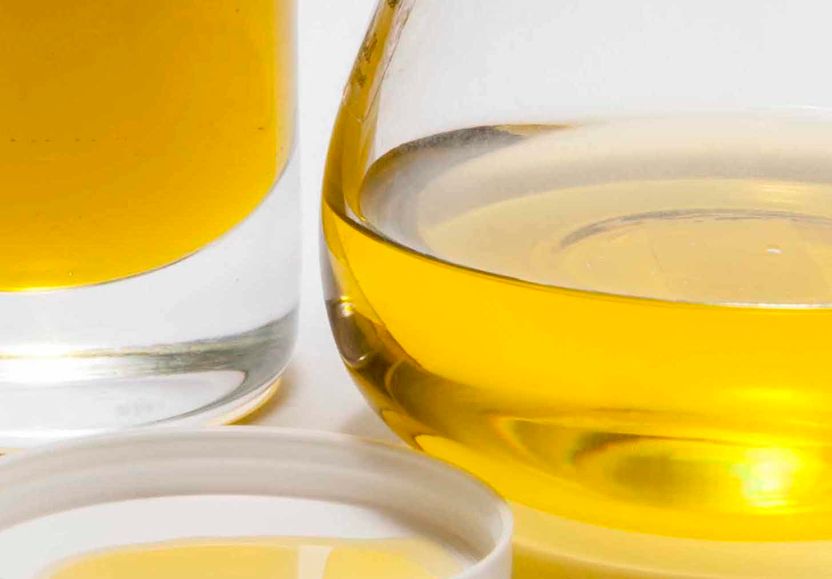Sustainable vanilla cultivation on fallow land
Advertisement
Preserving biodiversity while safeguarding the economic livelihood of smallholder vanilla farmers in Madagascar is possible, according to a study by the universities of Göttingen, Marburg and Hohenheim. The research team shows that vanilla plantations established on fallow land do not differ in terms of yield from those established in the forest. The cultivation also increases biodiversity on the land. The results have appeared in the journal Nature Communications.

Flowering vanilla plant
Universität Göttingen
For the study, the researchers recorded crop yields in vanilla agroforestry systems in northeastern Madagascar, the world's largest vanilla-growing area dominated by smallholders. They related the results to the identified biodiversity of trees, herbaceous plants, birds, amphibians, reptiles, butterflies and ants. Economic and ecological aspects of cultivation were combined. The most important result: the vanilla harvest on plantations established on fallow land was no different from the harvest on plantations established in the forest.
"So farmers don't have to clear to get high yields, but can enhance fallow land by growing vanilla," says first author Dr. Annemarie Wurz, a former doctoral student in agroecology at the University of Göttingen and now a postdoctoral researcher at the University of Marburg. "In Madagascar, the export of vanilla is an important source of income for tens of thousands of small farmers, and intensive cultivation on fallow land is a way to escape their poverty." Another argument is biodiversity: if vanilla was grown in the forest rather than on fallow land, it resulted in a 23 percent loss of widespread species. The endemic species decreased by 47 percent.
If farmers planted the vanilla more densely or increased the vanilla length, the harvest was higher, but the number of tree and reptile species then decreased. There was no negative impact on birds, amphibians, butterflies, ants or herbaceous plants. "We also observed that species diversity can be increased by high tree cover on plantations and in the landscape," says co-author Prof. Dr. Teja Tscharntke, an agricultural ecologist at the University of Göttingen. Co-author Prof. Dr. Ingo Grass, ecologist for tropical agricultural systems at the University of Hohenheim, adds: "Promoting vanilla cultivation on fallow land is ecologically and economically significant. This contributed to the current UN Decade for Ecosystem Restoration. In addition, this study illustrates opportunities for promoting and conserving biodiversity outside protected areas."
The interdisciplinary project was funded by the Volkswagen Foundation.
Note: This article has been translated using a computer system without human intervention. LUMITOS offers these automatic translations to present a wider range of current news. Since this article has been translated with automatic translation, it is possible that it contains errors in vocabulary, syntax or grammar. The original article in German can be found here.
Original publication
Annemarie Wurz et al. Win-win opportunities combining high yields with high multi-taxa biodiversity in tropical agroforestry. Nature Communications 2022. http://www.nature.com/articles/s41467-022-30866-8.




























































